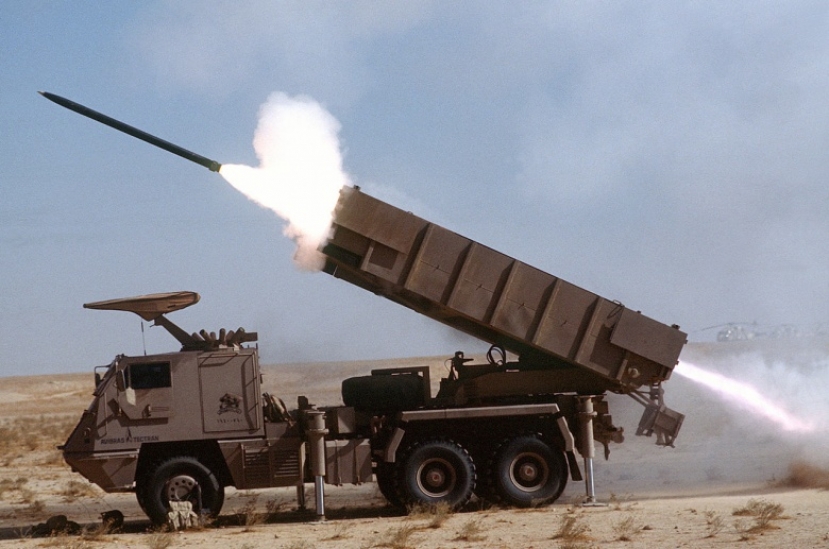Sorry, Obama: The Arab World No Longer Needs America
05.04.2015 19:52
 Sorry, Obama: The Arab World No Longer Needs America
Sorry, Obama: The Arab World No Longer Needs America
From the Gulf to Egypt, Lebanon, Jordan, and the Maghreb, you can feel that the pulse of the region has changed. There is relief and pride that the Arabs are once again taking their destiny in their hands and many important individuals and newspapers, such as Al-Dustour and Hassan Asfour are hailing the move as a strategic change in Arab thinking.
Operation Decisive Storm represents such a new concept in the Arab world that it has been dubbed “Salman’s Doctrine,” after Saudi King Salman bin Abdulaziz Al Saud. When former Iraqi President Saddam Hussein invaded Kuwait, it was the United States and its Western allies who took the initiative and put together a coalition to roll back Saddam’s invasion. The coalition was led by the United States, while the Arabs were merely members of this coalition. But last week, when the Houthis and their ally, former Yemeni President Ali Abdullah Saleh did not heed the Saudi Arabian advice to stay out of the port city of Aden, the Saudis did not wait for Washington or anyone else’s permission to take the initiative. They assembled a very strong coalition of 10 countries, coordinated with Washington and their Western allies and launched their operation.
This bold move was considered a precedent in the Arab world. It was interpreted as a change from the previous position of “waiting for a U.S. move which will never come as happened in Syria” as Al Quds Al Arabinewspaper said. The first lesson of this operation is that “regional powers can lead and change history,” as respected Saudi columnist Jamal Khagokshi wrote in Al Hayat. The region is not waiting for Washington anymore and it cannot depend on it to come to the rescue.
The second lesson was that Washington will go along if you take the lead and show firmness and leadership, and it will not reject an Arab initiative that enjoys wide support. The reluctance of the Obama administration to intervene in the region, especially the refusal to do more in Syria was criticized widely but this latest Arab action might not have seen the light of the day if that was not for this American reluctance. President Obama might have inadvertently helped the region more than any other American administration by forcing it to rely on its own leadership and resources. The regional leaders and people discovered that they can do it, they can go alone with American blessings and support but not U.S. participation.
The Arab leaders at the Arab summit in Sharm El Sheikh, Egypt agreed to create a joint Arab military force, to be a deterrent force, or a peacekeeping force as Arab League Secretary General Nabil Elarabysaid. As the Egyptian foreign minister, Sameh Shoukry put it, in the context of the challenges Arab security if facing, a force appropriate to facing those challenges has been created. The mere fact such the Arab nations agreed to create such a force after years of debate is an indication of its urgency. In Asharq Al-Awsat, Lebanese writer Radwan Al-Sayed noted that Iran and the West were used to Arab reluctance, and the refusal to take responsibility but said “today there is a place where there is unwavering Arab decision making. Yemen is a test, and if Sana’a is saved, the Arabs will be saved. This test is for Saudi Arabia, who has emerged as a leader and its success in Yemen can fortify this status or put it in jeopardy.”
Moreover, the operation revealed the frustration and indignation of the Arabs because of expanding role and influence of Iran in the region. The widely photographed Qassim Suleimani, the Iranian head of the Quds Force, on Arab lands and the numerous statements by Iranian officials about controlling four Arab capitals provoked loathing, indignation and anger. The operation in Yemen is seen by the Arabs as restoring their dignity and self confidence. Many voices in the Arab media considered the operation a resounding message from Saudi Arabia to Iran that it will not allow the fall of any more Arab countries to Iran’s influence. Many believe that this will be a lesson to Iran of the heavy price it must pay for expanding outside its borders using sectarian tools. Iran today looks more isolated than ever while Saudi Arabia has emerged as the leader of a large alliance.
The new coalition reveals a new map of reconciled regional relations among former competing and quarreling countries. The coming together of these frenemies is an indication of the level of the perceived threat in their own backyard of Yemen. Egypt and Qatar are now working together, Turkey and Saudi Arabia get along, and Sudan cut its ties to Iran and is now supporting Saudi Arabia and the operation. This all shows new strategic alliances emerging in a very volatile region. What brings all these countries together is a perceived existential threat of a new Middle East strategic structure that is being drawn without their knowledge or consent. They all look at the American-Iranian nuclear talks and fear that America might find a new strategic ally in the region leaving them out in the cold. They are worried about an American-Iranian collusion to remake the Middle East behind their backs. Operation Decisive Storm is their attempt to wrest the initiative and claim their central role in this process. It is also to put Iran on notice, that it went too far and crossed the red lines not only of the Arab national security vault but also of Arab identity and the social and sectarian contract of the Arab people.
Author: Amal Mudallali is a senior scholar at the Woodrow Wilson International Center for Scholars. Opinions expressed in this article are solely those of the author.
